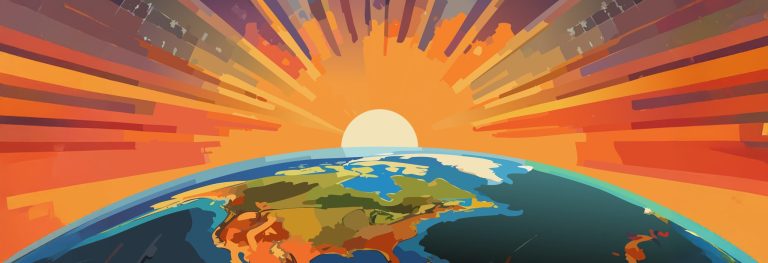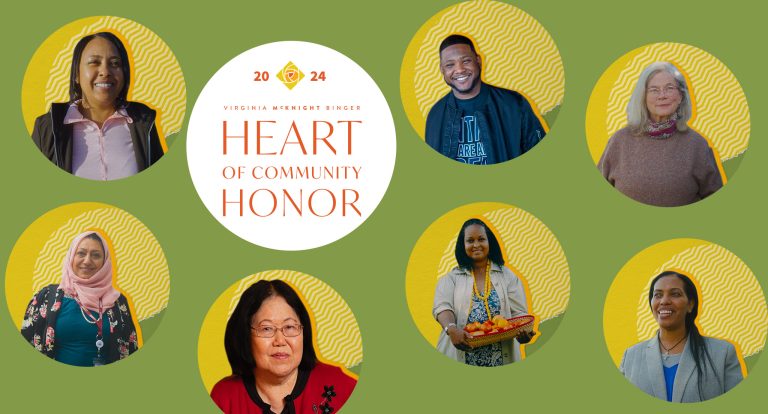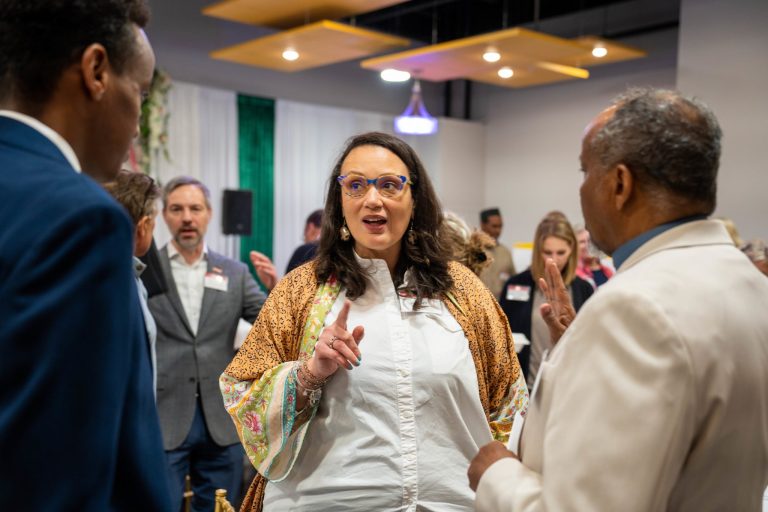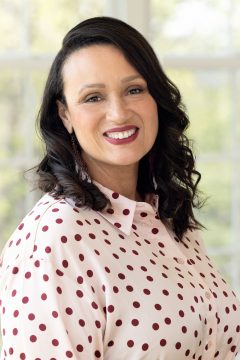A Conversation with Karyn Sciortino Johnson
Karyn Sciortino Johnson, diversity, equity, and inclusion manager at McKnight, recently spoke on a panel at the Minnesota Council on Foundations annual conference. Participants discussed the opportunities and challenges of working in diversity, equity, and inclusion (DEI) across Minnesota, and how DEI considerations can differ across communities. The following is an excerpt from the conversation, edited for length and clarity.
Q: How do you describe your work in DEI?
Karyn: DEI is a tool to use our individual and collective power to create the conditions so that more people can be their creative, brilliant selves. It is a deeply contextual practice that looks and feels different at every stage within an organization. We engage in this work because it is core to our mission and how we will move our Foundation and communities forward.
Q: What did McKnight’s DEI work look like early on?
Karyn: Although decades in the making, our latest iteration of DEI work began in 2016, when our board asked the question: How can we better understand the complex nuances of racial disparities in education and employment in Minnesota? This was an important inflection point. Until then, we tended to frame disparities in terms of socioeconomic disparities, and we took an almost color-blind approach. It was an important moment for us to make a public commitment to a race-and approach, to acknowledge that the cause of our state’s persistent disparities could not be explained solely by socioeconomic class. We had to consider the larger historic, structural, and institutional systems and policies that differentiate by race.
Q: What informed your strategies?
Karyn: We initially turned to intercultural competence experts to help us build our capacity to navigate cultural differences. Together, we designed a developmental approach—a gentle on-ramp into our DEI work. In 2016, we didn’t have a clear understanding of our culture and how it was impacting our people—and how our people were interacting within the community. We started by recognizing and examining our norms and values—how we act, think, and believe—to create a shared understanding of our organizational culture. Then our staff formed DEI workgroups applying a DEI lens to a particular policy or practice.
“DEI is a tool to use our individual and collective power to create the conditions so that more people can be their creative, brilliant selves.”—KARYN SCIORTINO JOHNSON, DIVERSITY, EQUITY, AND INCLUSION MANAGER
By the end of 2017, we were ready to learn about institutional inequities. We had developed the capacity to understand a more complex story. And that meant we were ready to struggle with the practical application of our values.
Today, we use the developmental approach as a theory of change. We are setting organizational and departmental goals to exercise our power in different ways, and we are working at being a more diverse, equitable, and inclusive workplace, community partner, and changemaker.
Q: What DEI commitments has McKnight made?
Karyn: In 2018, the Foundation crafted its first-ever DEI statement—and this statement later influenced the way we thought about and created McKnight’s strategic framework. In this document, we explicitly named DEI and racial equity as core values in how we approach our work.
Truth be told, when we thought about releasing a DEI statement, we had concerns about making a public commitment when we were in the early stages of our own internal DEI work. And yet, we felt it was important to share our aspirations before following through on those DEI promises.
A video created with the preface of McKnight’s DEI statement expressing a vision of the world we’re working to build.
Q: In what ways has McKnight followed through on those promises?
Karyn: Ever since the McKnight Foundation released its DEI statement, our board and staff have held fast to the tenet that we need to back up our words with actions. A recent Equity in Action report documents examples of shifts we’ve taken at the Foundation to tilt toward a more diverse, inclusive, and equity-oriented organization.
In the past four years, McKnight has made changes in how we use our public voice, make grants, invest funds, convene partners, and work with vendors. Our DEI efforts are a work in progress, and while this work has not always followed a smooth or linear path, the Foundation has indeed made progress. We encourage other organizations to start where they are and take steps toward DEI in all aspects of their work—as even the smallest steps add up over time.
Q: What’s an example of what your DEI work looks like in practice?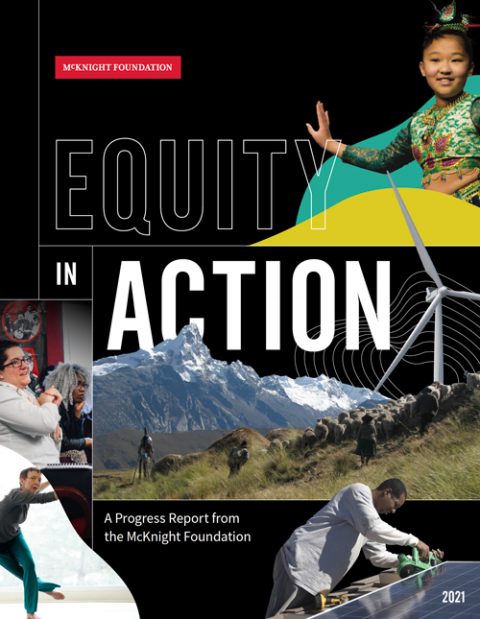
Karyn: A big programmatic example is that in 2020, we launched our new Vibrant & Equitable Communities program—focused explicitly on equity and inclusion in Minnesota. Instead of a few DEI projects here and there, equity has become a throughline for our programs [Arts & Culture, Collaborative Crop Research Program, Communities, Midwest Climate & Energy, Neuroscience] and operational goals.
A more recent operational example is the new vendor diversity policy we developed this year. Our goal is to promote fairness and inclusion across our vendors and to increase opportunities for underrepresented groups to provide goods and services to the Foundation. I’m working with our internal departments to understand their ecosystem of vendors, and how they might diversify and build more authentic and accountable relationships with businesses in our community.
Q: What are some of the biggest challenges in internal DEI work?
Karyn: Everybody has their own work to do. We each have different work, based on our lived experiences, knowledge, and levels of expertise. If we act like some of us are done and waiting for others to “catch up,” it’s not helpful. It sends a chilling message that divides us. I think the challenge is discerning where we are in our work, and then how we move forward. We could start with an all-staff training strategy, yet that isn’t sufficient these days.
We have organizational, departmental, and individual ambitions about DEI. Some are already taking a DEI approach to their day-to-day work, while others need different kinds of support and awareness around choosing to use their power to take a DEI approach. It’s not so much making a case for why DEI is important—that is already a given. It’s more about what knowledge, skills, and expertise are needed to take ownership for DEI.
“In order to advance our mission in a complex and uncertain world, we need to continue to build our skills to engage people across lines of difference.”—KARYN SCIORTINO JOHNSON, DIVERSITY, EQUITY, AND INCLUSION MANAGER
Q: How do you bridge across differences?
Karyn: We care about how to communicate in ways that bridge across cultural differences and various communities, and we’re still trying to get clear on how to do that well. We understand that higher levels of intercultural competence have enabled us to see people and the world through multiple perspectives; to communicate more effectively with a wider range of people; to ask appropriate and effective questions and be more open to different kinds of answers. And all of these skills mean that we are able to lead with both boldness and humility while still being grounded in our mission and values.¹
We want to advance a more just, creative, and abundant future where people and planet thrive. In order to advance our mission in a complex and uncertain world, we need to continue to build our skills to engage people across lines of difference. That includes people who might have different views on how to solve a problem or the nature of the problem. We want to make room for a diverse set of folks to engage in issues like climate and racial equity to provoke new and creative insights, ideas, and narratives.
We still have much more work to do and more to learn. We know the roots of inequity are deep and structural. We will continue learning, listening, reflecting, and speaking up—with transparency—to advance diversity, equity, and inclusion inside and outside the Foundation.
¹Concept developed by Interculturalist, LLC
